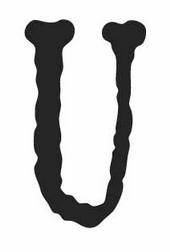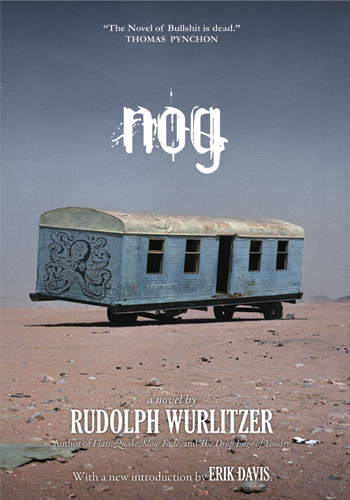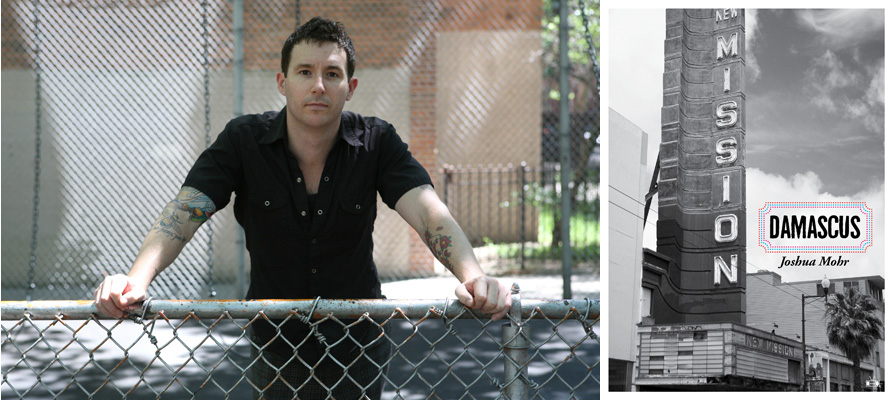The Savage Specifics of Such a Finale: A Conversation With Joshua Mohr
Joshua Mohr’s Damascus (Two Dollar Radio) is a tightly packed novel about the lost, losing, and broken people who frequent Damascus, a dive bar in San Francisco. The story is moving, bitterly charming, sometimes depressing, but always engaging. I talked to Joshua about his book, character driven writing, writing as a form of protest and much more.
I read Damascus as very character driven. It’s really the people and what you show us about their lives that create the narrative. Would you consider Damascus character driven?
Absolutely. Books don’t work if the people on the pages aren’t alive. It’s why writing a novel takes so long. You have to dig around in other psyches, other hearts and souls. The book isn’t going to be any good until your characters are the ones telling the story, and you’re just the poorly paid secretary scribbling it all down.
I teach in the MFA program at the University of San Francisco and when I talk characterization with my students, I emphasize the idea that actually the characters have to characterize themselves: the reader just sits back and watches the players stalk their sordid habitats. This kind of active characterization involves your reader in the story, too, making them put the pieces together for what each new scene means, how it contributes and complicates the action they’ve already observed. They become a kind of detective trying to compile an interpretation.
The Orange Eats Creeps
Just got this in the mail… kind of really excited about it: The Orange Eats Creeps by Grace Krilanovich, coming from Two Dollar Radio. It speaks for itself I think, I kind of want to marry it for its description alone:
It’s the ’90s Pacific Northwest refracted through a dark mirror, where meth and madness hash it out in the woods. . . A band of hobo vampire junkies roam the blighted landscape—trashing supermarket breakrooms, praying to the altar of Poison Idea and GG Allin at basement rock shows, crashing senior center pancake breakfasts—locked in the thrall of Robitussin trips and their own wild dreams.
A girl with drug-induced ESP and an eerie connection to Patty Reed (a young member of the Donner Party who credited her survival to her relationship with a hidden wooden doll), searches for her disappeared foster sister along “The Highway That Eats People,” stalked by a conflation of Twin Peaks’ “Bob” and the Green River Killer, known as Dactyl.
With a scathing voice and penetrating delivery, Grace Krilanovich’s The Orange Eats Creeps is one of the most ferocious debut novels in memory.
“Like something you read on the underside of a freeway overpass in a fever dream. The Orange Eats Creeps is visionary, pervy, unhinged. It will mess you up.”
–Shelley Jackson“Wandering back and forth between the waste spaces of the Northwest and the dark recesses of its narrator’s mind, The Orange Eat Creeps reads like the foster child of Charles Burns’ Black Hole and William Burroughs’ Soft Machine. A deeply strange and deeply successful debut.”
–Brian Evenson
[You can preorder this book now from Two Dollar Radio for $10. It ships soon I believe.]
Underland Press Sale

Underland Press wrote to say they are offering a 15% discount on their entire stock through the end of December. This includes their lovely, lovely limited edition hardcovers. Finch! Last Days by Brian Evenson! Best American Fantasy! Evil Clowns!
Go forth. Buy. Tell your friends. When you check out, use the code: xmas09.
There’s also a four books for $30 deal at Two Dollar Radio. Joshua Mohr! Gary Indiana! Nog!
Happy holidays.
Eric Oberauf On The New Publishing Model: Not Boutique But Better
 Eric Oberauf, captain of the publishing house Two Dollar Radio, has a great article in the new Brooklyn Rail arguing that we should be sober but optimistic about the printed book object and its success as a method of literary distribution. In “The Revenge of Print,” Oberauf explains the relevance of independent presses very well, summarizes the identity crisis that passes for a business model at most big and butterchurning book houses, and argues with a thoughtful and historically aware perspective that adapting a “realistic scale” isn’t downsizing expectations but getting back to mattering. What his argument reminds us is that people pay for books not because they’re addicted to mulch, but to read words and like words and carry words around so they can read them some more, which makes the whole thing more communication than commodity. Maybe you’re going to make more friends than money, it’s true. So if corporate book publishers want to continue tricking any cash into falling toward them, they might want to remember that books are closer to party invitations than to coat hangers.
Eric Oberauf, captain of the publishing house Two Dollar Radio, has a great article in the new Brooklyn Rail arguing that we should be sober but optimistic about the printed book object and its success as a method of literary distribution. In “The Revenge of Print,” Oberauf explains the relevance of independent presses very well, summarizes the identity crisis that passes for a business model at most big and butterchurning book houses, and argues with a thoughtful and historically aware perspective that adapting a “realistic scale” isn’t downsizing expectations but getting back to mattering. What his argument reminds us is that people pay for books not because they’re addicted to mulch, but to read words and like words and carry words around so they can read them some more, which makes the whole thing more communication than commodity. Maybe you’re going to make more friends than money, it’s true. So if corporate book publishers want to continue tricking any cash into falling toward them, they might want to remember that books are closer to party invitations than to coat hangers.
Here’s a pull quote:
The goal for book publishers, most simply put, should not be to undertake a virtual arms race of developing technology with both the Internet and media, or to try to compete on a bloated scale with music and film, or even to translate a work to conform to an undetermined potential future model. The mission for book publishers and print media at large should be to create a product that is irreplaceable and indispensable.
Two Dollar Radio rereleases Rudy Wurlitzer

Two Dollar Radio has just now rereleased Rudolph Wurlitzer’s classic ‘Nog,’ a sincerely gritty and visceral book with sentences that crush. Having read this book in earlier editions, I can tell you this book feels just as vital and fresh now as it likely did among the literary terrain of its original release in the 60’s, perhaps even more so.
But let’s don’t have me give you the word on it. Let’s have Thomas Pynchon:
“Wow, this is some book, I mean, it’s more than a beautiful and heavy trip, it’s also very important in an evolutionary way, showing us directions we could be moving in — hopefully another sign that the Novel of Bullshit is dead and some kind of re-enlightenment is beginning to arrive, to take hold. Rudolph Wurlitzer is really, really good, and I hope he manages to come down again soon, long enough anyhow to guide us on another one like Nog.”
Death to the Novel of Bullshit, what else can you ask for?
Gary Indiana, Rudy Wurlitzer and YOU!

On May 28, worlds will collide as Gary Indiana and Rudy Wurlitzer converge on 192 Books in Chelsea, just south of my office. Two Dollar Radio has just put out Indiana’s The Shanghai Gesture, and is about to rerelease Wurlitzer’s Nog—a fevered dream which threatens to split our world in twain, if ever there was one (to paraphrase Scruffy). Now, I have not yet read either of these, but I have read books by these gentlemen (I use the term loosely. HEYOOOO!) before. Wurlitzer’s The Drop Edge of Yonder, which Two Dollar Radio put out last year, was rad. BMX rad, even (fist pound for the 1980s). And Indiana is a baaaddd man (to paraphrase Ali [or is it Mr. T?]). The upshot is, I suppose, that this will be a strange and surprising event the likes of which we haven’t seen since the Tunguska incident (nod to Pynchon).
May 20th, 2009 / 7:59 am

